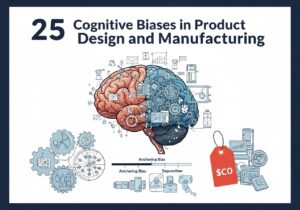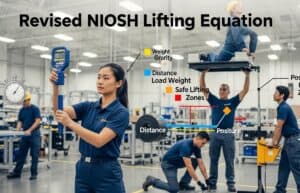The Toyota Production System is founded on the complete elimination of waste, categorized into 7 types, 3 main being described here: مودا (non-value-adding work), Muri (overburden), and Mura (unevenness). While Muda is the most commonly discussed, TPS recognizes that Muri and Mura are often the root causes of Muda and must be addressed first to achieve a truly lean system.
Muda, Muri, Mura (3 of the 7 Wastes)
- تاييتشي أوهنو
Muda (Waste) refers to any activity that consumes resources but creates no value for the customer. Taiichi Ohno originally identified seven types of Muda: Transport (unnecessary movement of products), Inventory (excess products and materials), Motion (unnecessary movement by people), Waiting (for the next production step), Overproduction (producing more than is needed), Over-processing (doing more work than necessary), and Defects (efforts causing rework or scrap). An eighth waste, unused human talent, is often added.
Mura (Unevenness) refers to inconsistency or irregularity in a process. It can be seen in fluctuating production schedules or inconsistent work methods, leading to periods of rushing followed by idleness. Mura is often addressed through Heijunka (production leveling), which smooths out the production mix and volume.
Muri (Overburden) means overburdening equipment or operators by asking them to do more than their natural capacity allows. This can lead to safety issues, burnout, and defects. Muri is often caused by Mura and a lack of standardized work. The TPS philosophy emphasizes that eliminating Mura and Muri is essential for systematically and sustainably eliminating Muda. By creating a leveled, stable, and reasonably paced work environment, the conditions that generate waste (Muda) are removed at their source.
النوع
Disruption
الاستخدام
Precursors
- frank and lillian gilbreth’s time and motion studies
- henry ford’s focus on waste reduction in his assembly lines
- principles of scientific management by frederick winslow taylor
التطبيقات
- البرمجيات development (eliminating unused code, unnecessary features)
- healthcare (reducing patient waiting times, redundant paperwork)
- service industries (streamlining customer service processes)
- logistics (optimizing delivery routes to eliminate wasted motion and fuel)
- government administration (simplifying bureaucratic processes)
براءات الاختراع:
Potential Innovations Ideas
!!مستويات !!! العضوية مطلوبة
يجب أن تكون عضوًا !!! مستويات!!! للوصول إلى هذا المحتوى.
متاح للتحديات الجديدة
Mechanical Engineer, Project, Process Engineering or R&D Manager
متاح لتحدي جديد في غضون مهلة قصيرة.
تواصل معي على LinkedIn
Plastic metal electronics integration, Design-to-cost, GMP, Ergonomics, Medium to high-volume devices & consumables, Lean Manufacturing, Regulated industries, CE & FDA, CAD, Solidworks, Lean Sigma Black Belt, medical ISO 13485
احصل على جميع المقالات الجديدة
مجاني، لا يوجد بريد عشوائي، ولا يتم توزيع البريد الإلكتروني ولا إعادة بيعه
أو يمكنك الحصول على عضويتك الكاملة -مجانًا- للوصول إلى جميع المحتويات المحظورة >هنا<
Historical Context
Muda, Muri, Mura (3 of the 7 Wastes)
(if date is unknown or not relevant, e.g. "fluid mechanics", a rounded estimation of its notable emergence is provided)
Related Invention, Innovation & Technical Principles









